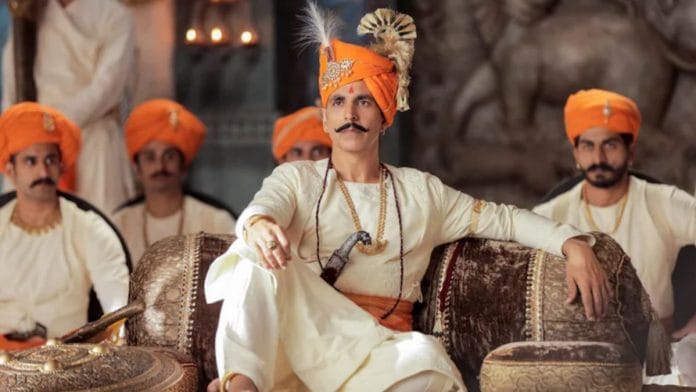Akshay Kumar’s Samrat Prithviraj is riddled with inaccuracies despite the actor’s statement that the filmmakers spent more than a decade researching on the subject. The film’s posters boldly proclaim that Prithviraj Chauhan was the ‘last Hindu king of India’. Not all academicians and historians agree though, with many pointing out that Prithviraj Chauhan was neither the last ‘Hindu’ king nor the last king of India.
“History shows us that Prithviraj was the last Hindu ruler of Delhi and the surrounding region. But other Hindu rulers continued to reign in other parts of India such as Odisha. The Vijayanagar empire also emerged at a later date,” says history professor Krishnokoli Hazra from Loreto College, Kolkata.
The Rajput warrior king of the Chauhan dynasty of Ajmer ascended the throne around 1177 CE and died in 1192 CE. Were there no Hindu kings after him? Ali Nadeem Rezavi, professor of medieval India at Aligarh Muslim University, used the examples of the Vijayanagar Empire and Shivaji to make a similar point. “The Vijayanagar rulers also called themselves the Hindu Kings. Is it only Delhi which is supposed to be India? How would Shivaji’s followers react if you tell them that he was not a Hindu king? Just because he was not holding the Delhi region? The heart of the Brahmanical empire was still sitting in Maratha land. Would you deny him the right to be called a Hindu king then?” Rezavi asks.
Other academicians are equally baffled by the film’s claims. Professor Farat Hasan of Delhi University said that it does not make sense to assign modern religious identities to historical figures. “Religious identities were very fluid at that time,” he adds.
Also read: Samrat Prithviraj is so focused on Muslim invaders that it forgets the king himself
What about Hemu, also the last Hindu king?
The Haryana government, too, may take umbrage over Akshay Kumar’s claims that Prithviraj was the last Hindu king. The administrative website of Panipat city describes the 16th-century former general and later king, Hemu, as a freedom fighter who “tried utmost to change the destiny of India’s future”. It goes on to describe Hemu or Samrat Hem Chandra Vikramaditya as the last Hindu emperor of India.
Popular historical references also talk about how Hemu was the last Hindu ruler of Delhi. Hemu ruled for barely a month from 7 October 1556 to 5 November 1556. He claimed royal status after defeating Akbar’s army in the Battle of Delhi, but was captured and killed in the Second Battle of Panipat.
“He was an extremely capable and brave Wazir (prime minister) of the Afghan ruler Adil Shah who ruled in eastern India. According to Badauni, after capturing Agra and Delhi, he took the title ‘Vikramaditya’ and planned to establish his own independent kingdom there. This was a struggle for power, not a religious war, since Hemu had won many battles in the past for his Muslim monarch,” said a historian who did not want to be named.
Also read: Tax cuts, nationalism and Amit Shah’s blessings aren’t saving Akshay’s Samrat Prithviraj
Legend of Prithviraj based on bardic poems
Prithviraj Chauhan’s reign predated that of Hemu’s brief rule by at least 380 years. According to Rezavi, much of what we know of him was taken from Bardic poems written nearly 400 years after his reign.
“Like Hemu, he also belonged to a ruling elite class who were holding the region of Delhi once upon a time. But then, Delhi was not the capital. You may say it was one of the outlying towns of the Chahmana kingdom. The entire story of Prithviraj is built on bardic poems, which appear to have been written during the 16th century. There might have been portions which might be original-composed by the bard who was living during the period of Prithviraj. But then which are the original verses, no one is quite sure,” said Rezavi.
These poems are known for their hyperbole. “If you read any of the verses of any of the poets of Shahjahan’s period, and try to get a description of the red Fort of Shahjahanabad, you will find references of buildings so high they touch the sky. Such poems are always hyperbolic. Even in the case of Prithviraj Raso, we should expect inflated praise for the person in whose name it is being written,” he said.
(Edited by Zoya Bhatti)






